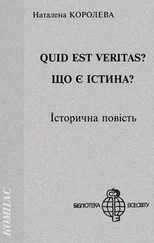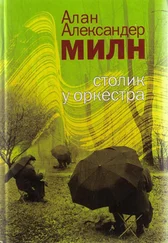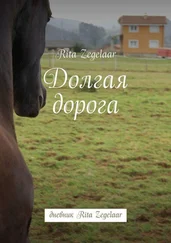Rita Monaldi - Veritas
Здесь есть возможность читать онлайн «Rita Monaldi - Veritas» весь текст электронной книги совершенно бесплатно (целиком полную версию без сокращений). В некоторых случаях можно слушать аудио, скачать через торрент в формате fb2 и присутствует краткое содержание. Жанр: Исторический детектив, на английском языке. Описание произведения, (предисловие) а так же отзывы посетителей доступны на портале библиотеки ЛибКат.
- Название:Veritas
- Автор:
- Жанр:
- Год:неизвестен
- ISBN:нет данных
- Рейтинг книги:3 / 5. Голосов: 1
-
Избранное:Добавить в избранное
- Отзывы:
-
Ваша оценка:
- 60
- 1
- 2
- 3
- 4
- 5
Veritas: краткое содержание, описание и аннотация
Предлагаем к чтению аннотацию, описание, краткое содержание или предисловие (зависит от того, что написал сам автор книги «Veritas»). Если вы не нашли необходимую информацию о книге — напишите в комментариях, мы постараемся отыскать её.
Veritas — читать онлайн бесплатно полную книгу (весь текст) целиком
Ниже представлен текст книги, разбитый по страницам. Система сохранения места последней прочитанной страницы, позволяет с удобством читать онлайн бесплатно книгу «Veritas», без необходимости каждый раз заново искать на чём Вы остановились. Поставьте закладку, и сможете в любой момент перейти на страницу, на которой закончили чтение.
Интервал:
Закладка:
“All right, but no more than a jugful. Just one, is that clear?” said Cloridia, concluding the squabble with the footman.
I looked at her questioningly: although she had said the last few words in Italian, the Turkish footman had given her a sly smile of comprehension.
“He was taken prisoner at Zenta and during his imprisonment learned a little Italian,” explained Cloridia, while the man disappeared inside the great door of the palace. “Wine, wine, they’re always wanting to drink. I promised that I would get a jugful for them secretly, I’ll ask the sisters at Porta Coeli. But just one, mind you! Otherwise the Agha will find out and have both their heads cut off. And to think that every day the Commissioner for Victualling provides three okkas of wine, two of beer and a half of mulled wine for the Armenians, the Greeks and the Jews in the Agha’s retinue. What I say is: why don’t these Turks all convert to Our Lord’s religion, which even allows the priests to drink wine in church?”
Then Cloridia turned towards the convent.
“Do you want me to get the wine?” I asked.
“That would be good. Ask the pantry sister to send a jug of the worst stuff, Liesing or Stockerau, which they use to clean wounds in the infirmary, so the Agha’s footmen don’t get too fond of it.”
The great doors of the palace were closing. Cloridia ran inside and threw me a last smiling glance before the doors shut on her.
What a wonderful change in my wife, I thought, standing in front of the closed door, now that things had turned out so well for us. The last two years, full of hardships and privations of all kinds, had sapped her strength and hardened her character, once so serene and gay. But now the line of her mouth, the bloom of her cheeks, the expression of her forehead, the light in her complexion, the glossiness of her hair: everything was as it had been before the famine. Although the tiny wrinkles of age and suffering had not completely vanished from her delicate face, just as they furrowed my own, they had at least lost their leaden bitterness and were even in harmony with her cheerful physiognomy. For all this I had only Abbot Melani to thank.
The twisted and crazed thread that linked me, my wife and Atto to Rome and Vienna — I thought as I made my way to the convent’s pantry — actually led in a third direction: the Ottoman lands. The shadow of the Sublime Porte hung over my entire life. And not only because eleven years earlier, when I was working in the villa of Cardinal Spada, we servants had served dinner in the garden dressed up as janissaries for the amusement and delectation of the guests, including Abbot Melani. No, everything began with Cloridia’s origins: daughter of a Turkish slave, born in Rome and baptised with the name Maria, kidnapped in adolescence and taken to Amsterdam, where she had grown up, under the name of Cloridia, tarnished, alas, by the sin of trafficking her own body, before returning to Rome in search of her father, and at last finding — praise be to God — love and wedlock with my humble self. As I have already said, we had met at the Inn of the Donzello, where I was then working, in September 1683, just when the famous battle between Christians and Infidels was being fought out at the gates of Vienna, in which, by the grace of heaven, the forces of the True Faith had triumphed. And it was at that same time that I had met Atto Melani, who was also staying at the Donzello.
Cloridia had finally narrated to me the vicissitudes she had endured after being torn from her father. But she had never wished to confide anything more about her mother. “I never knew her,” she had lied to me at the beginning of our acquaintance, afterwards letting fall little half-sentences, like the fact that the smell of coffee reminded her strongly of her mother, and finally cutting short my curiosity by saying that she could remember “nothing about her, not even her face.”
It was not from Cloridia, but from the events of those days at the Donzello that I had learned the few things I did know about her mother: a slave of the powerful Odelscachi family, the same family for which her father had worked, shortly before Cloridia’s kidnapping she had been sold to some unknown person, and her father had been unable to oppose the transaction, since he had never married her, precisely because she was a slave.
But I had never found out anything about my wife’s infancy with her mother. Her face would cloud over as soon as I or our daughters showed any curiosity.
It was with great surprise that she had received the Chormaisterin’s proposal to work for the Savoys as an intermediary with the Agha’s serving staff. She had thrown me a dark look, indicating that she could guess who had told Camilla about her Ottoman blood. .
And I was equally amazed, having no idea till that moment that my wife knew Turkish so well! The perceptive Chormaisterin, on the other hand, on hearing of the Ottoman embassy, had immediately thought of Cloridia for the job, already certain of her linguistic abilities; this was a surprise, since I had clearly stated that Cloridia had been separated from her mother at a very early age.
As I arrived in the convent cloisters, I only just avoided a collision with two porters as they staggered under the weight of an enormous trunk which was threatening to scrape the plaster from the walls, to the extreme displeasure of the old nun at the door.
“Your master must have packed clothes for the next ten years,” grumbled the sister, clearly referring to some guest who had just arrived.
13 of the clock: luncheon hour for noblemen (while in Rome they have only just awoken). Court employees are already flocking to the coffee shops and performances begin in the theatres.
This day was doubly important. Not only had Cloridia begun her job at the palace of a prince, a distinguished condottiero and counsellor of the Emperor, but I myself was about to embark upon my task in the service of the Most August Joseph I. After the harsh winter months and a scarcely less icy start to spring, the first warm days had arrived; the snow had melted around Vienna and the moment had come to take charge of the chimneys and the flues of the abandoned Caesarean building, the task for which I had obtained so desirable an appointment: chimney-sweep by licence of the court.
As I have had occasion to mention, the harsh atmospheric conditions of the previous months had made it impossible to carry out any work in a large building like the one I had been told awaited me. Furthermore, a thaw in the upper stretches of the Danube had broken all the bridges and brought down huge quantities of ice, swelling the river and doing great damage to the gardens in the suburbs. And so some of the less envious chimney-sweeps had strongly advised me against visiting the building until the clement weather arrived.
On that beautiful morning early in April — although the temperature was still severe, at least for me — the sun was shining, and I decided the time had come: I would begin to take charge of His Majesty’s abandoned property.
Seizing the occasion, the Chormaisterin had asked a small favour of me: the nun who acted as bursar at Porta Coeli wanted me to have a look, as soon as I could, at the buttery that the convent owned in its vineyards at Simmering, not far from the place I would be visiting. It was very large and contained a little room with a fireplace, the chimney of which needed sweeping. I was given the keys to the buttery and I promised Camilla that I would see to it as soon as possible.
I had already told our assistant to harness the mule and to fill the cart with all the necessary tools. I picked up my son and went out into the street. I found the assistant waiting for me, sitting on the box seat, with his usual broad smile.
Читать дальшеИнтервал:
Закладка:
Похожие книги на «Veritas»
Представляем Вашему вниманию похожие книги на «Veritas» списком для выбора. Мы отобрали схожую по названию и смыслу литературу в надежде предоставить читателям больше вариантов отыскать новые, интересные, ещё непрочитанные произведения.
Обсуждение, отзывы о книге «Veritas» и просто собственные мнения читателей. Оставьте ваши комментарии, напишите, что Вы думаете о произведении, его смысле или главных героях. Укажите что конкретно понравилось, а что нет, и почему Вы так считаете.











